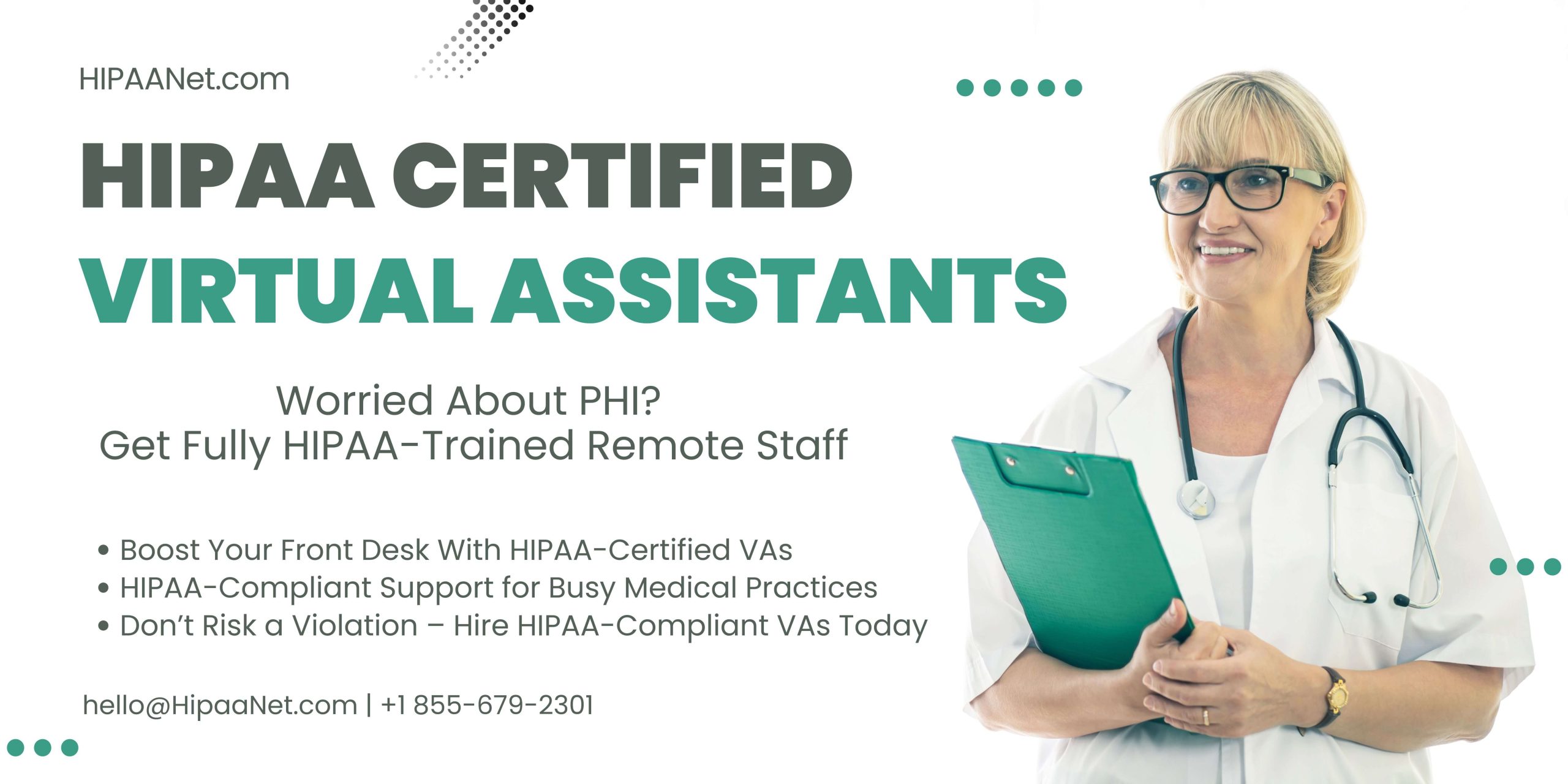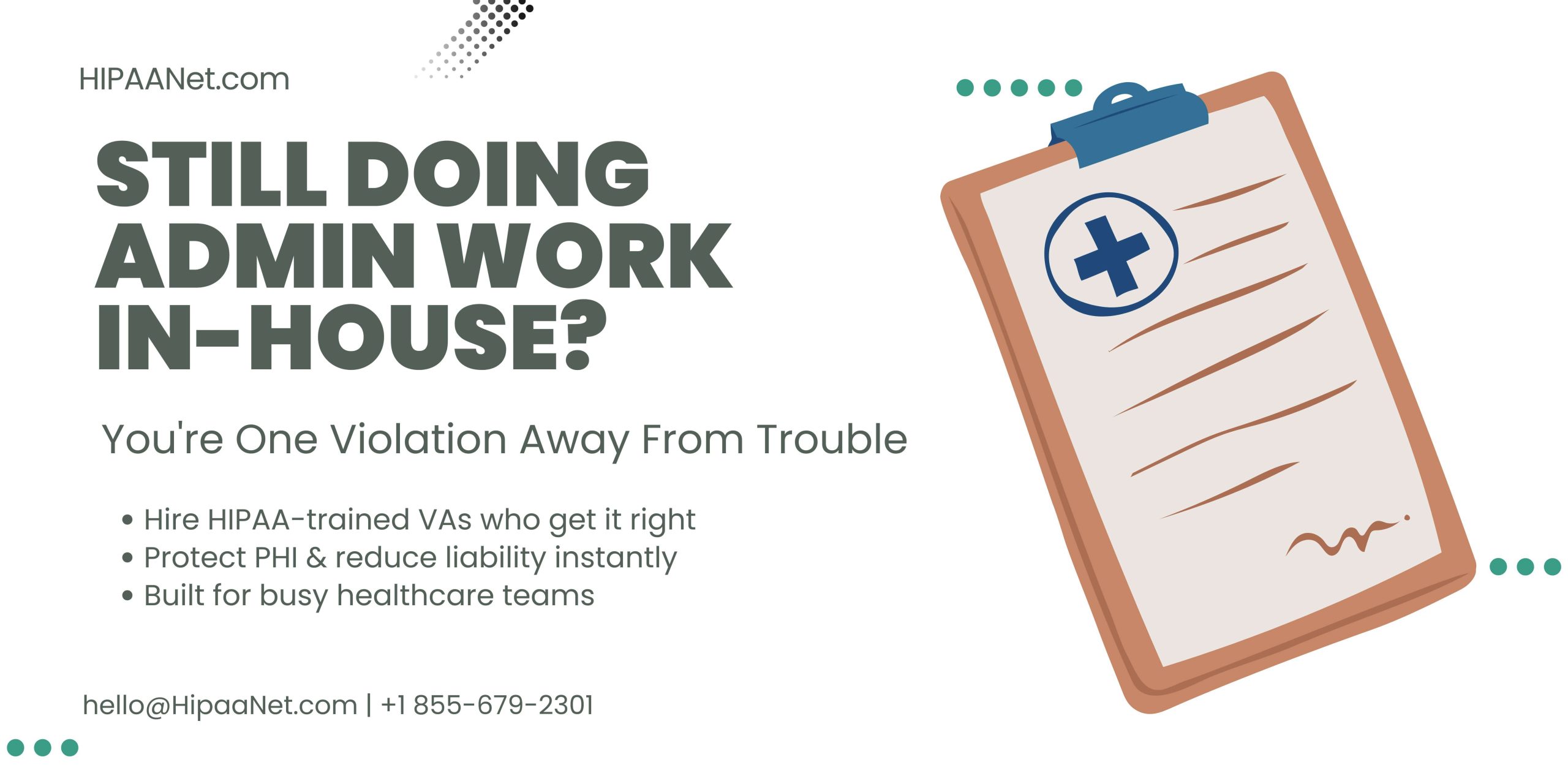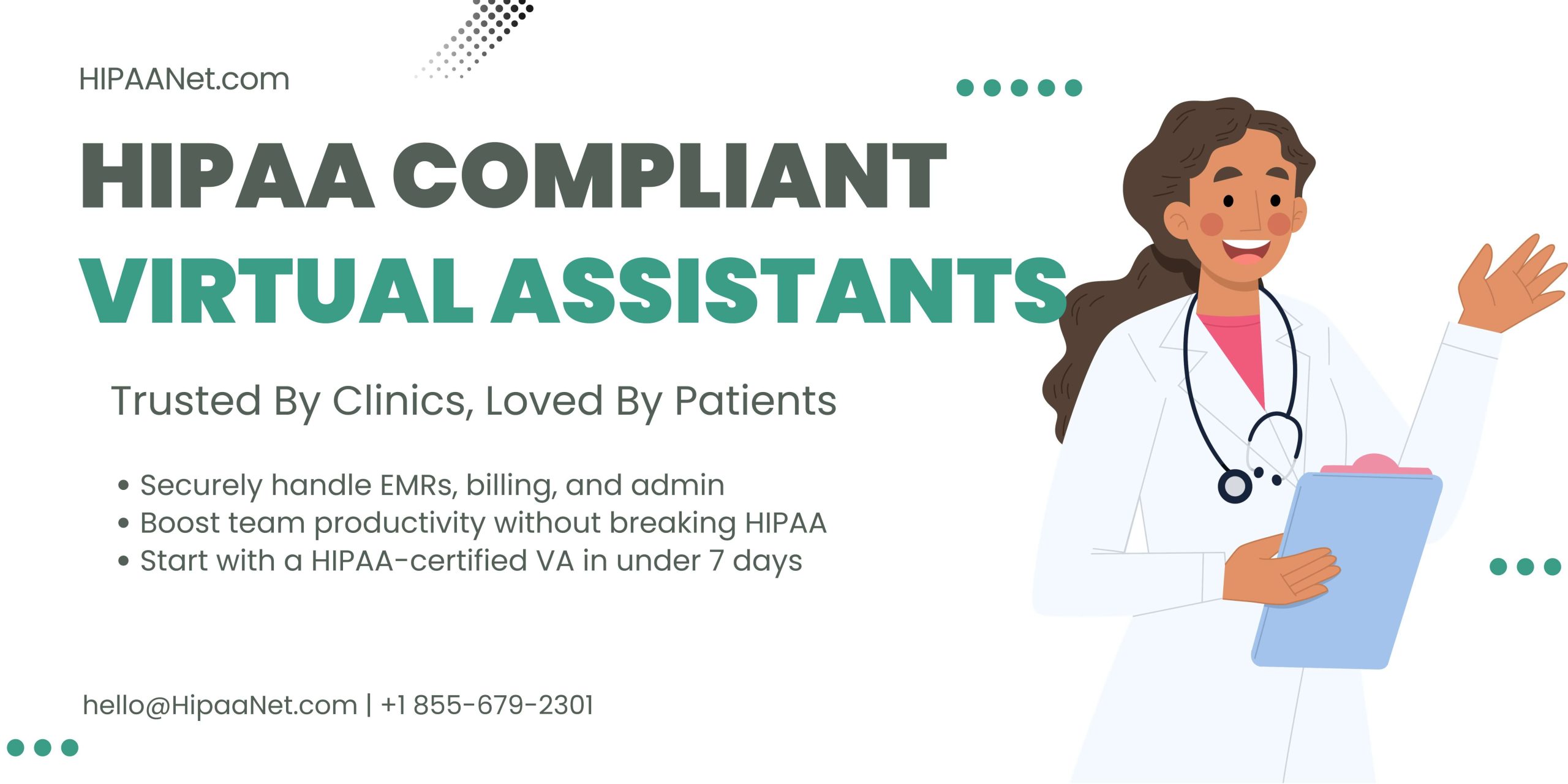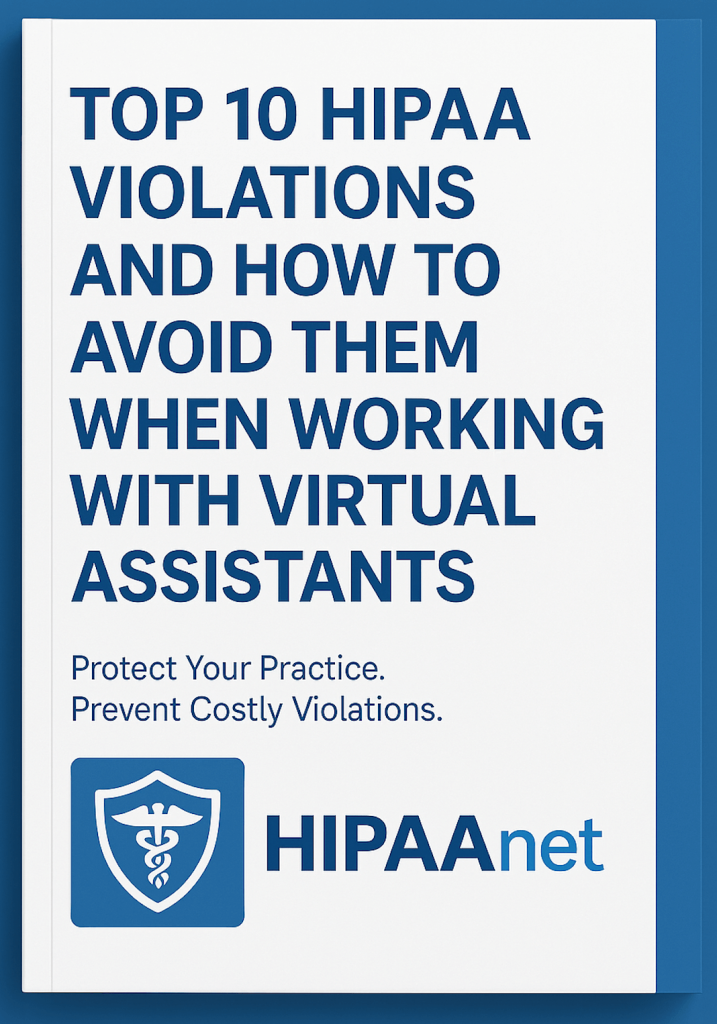Navigating HIPAA violations can feel overwhelming. With nearly 60% of healthcare organizations experiencing a data breach in the past two years, understanding the reporting process is crucial.
Failing to report these violations not only puts patient privacy at risk but can also lead to hefty fines and legal repercussions.
The consequences of ignoring HIPAA violations can be severe, impacting your organization’s reputation and financial stability. Knowing who to report these incidents to can help mitigate risks and ensure compliance.
This article will guide you through the proper channels for reporting HIPAA violations, helping you take the necessary steps to protect your patients and practice.
For expert assistance and comprehensive support, HIPAANet offers tailored solutions to navigate HIPAA compliance effectively.
Overview of HIPAA Violations
Understanding HIPAA violations is crucial for anyone working in the healthcare industry. HIPAA stands for the Health Insurance Portability and Accountability Act. This law keeps patient information safe and private.
When someone breaks these rules, it’s a serious matter. Here’s what you need to know about HIPAA violations.
- Why Reporting Matters
Reporting HIPAA violations is essential for several reasons. First, keeping patient data private helps build trust. When patients feel secure, they’re more likely to seek care. Ignoring violations can lead to consequences such as steep fines and a damaged reputation.
- Challenges in Reporting
Reporting violations isn’t always straightforward. You might worry about backlash or think your employer will retaliate against you. These fears can discourage individuals from speaking up. However, understanding the proper channels for reporting helps address these challenges.
- Possible Consequences
If you don’t report HIPAA violations, you risk harming patients and your organization. Violations can lead to identity theft and misuse of sensitive information.
Organizations can face fines ranging from $100 to $50,000 for each violation. These financial impacts can cripple a healthcare facility’s operations.
- Where to Report Violations
Reporting HIPAA violations typically goes through the following channels:
- Internal Reporting: Report to your supervisor or compliance officer.
- External Reporting: Contact the U.S. Department of Health and Human Services (HHS) Office for Civil Rights. You can submit complaints online or via mail.
- State Authorities: Your state may also have specific reporting requirements.
- Why Choose HIPAANet Services
Unsure about how to manage reporting or compliance issues? Outsourcing to HIPAANet is a wise choice. HIPAANet has the expertise to handle administrative tasks and ensure compliance.
You’ll benefit from their specialized knowledge without the stress. They help streamline the reporting process, making it easier to navigate.
Consider professionals who understand HIPAA rules and can guide your organization. Outsourcing to HIPAANet provides peace of mind. Their services help ensure that patient data stays protected and compliant with legal standards.
With over 60% of healthcare organizations facing data breaches, prioritizing HIPAA compliance is essential for every provider.
For more hands-on assistance, HIPAANet offers tailored approaches to address your specific needs. With their help, you can navigate the complex world of HIPAA compliance, allowing you to focus on patient care.
Ready to take action? Be proactive about HIPAA violations. To learn more about compliance strategies and policies, visit HIPAA Journal and American Medical Association for the most current information.
Taking steps today will protect your organization and your patients’ information. For all healthcare providers, understanding HIPAA violations is necessary for a safe environment.
Importance of Reporting
Understanding who should report HIPAA violations is crucial in the healthcare industry. You’re protecting both patient privacy and your organization’s reputation.
HIPAA stands for the Health Insurance Portability and Accountability Act. It sets standards to safeguard sensitive patient information. When violations happen, reporting them correctly helps avoid serious consequences such as legal issues or fines.
Let’s explore why reporting is so important, who to report to, and how HIPAANet can help you navigate the complexities involved.
1. Importance of Reporting HIPAA Violations
Reporting HIPAA violations ensures patient confidentiality. Not reporting can lead to identity theft, financial loss, and legal trouble for your organization.
Nearly 60% of healthcare organizations recently faced data breaches; this spike underscores the critical nature of reporting violations promptly and correctly.
2. Legal Obligations
You have a legal responsibility under HIPAA to report any violations. Failing to do so can result in hefty penalties. Organizations may face fines ranging from $100 to $50,000 per incident.
This can quickly accumulate, resulting in substantial financial damage. Adhering to these legal obligations remains key to maintaining your organization’s integrity and trustworthiness. For detailed regulations, you can visit the U.S. Department of Health and Human Services.
3. Protecting Patient Privacy
When you report violations, you’re protecting your patients’ privacy. Patient trust hinges on the assurance that their information remains secure.
If violations go unreported, patients risk exposure to scams or identity theft. Trust is vital for healthcare providers to maintain relationships and provide quality care.
Utilizing HIPAANet services ensures you manage these issues effectively. Their expertise helps your organization navigate compliance and reporting with confidence.
4. Consequences of Not Reporting
Failing to report HIPAA violations can lead to adverse outcomes. Organizations may face legal penalties, increased scrutiny, and damage to their reputation. Patients may choose to seek care elsewhere, feeling that their information isn’t safe.
Protecting yourself and your organization means reporting violations promptly. Knowledge about the implications of your actions can encourage compliance and vigilance.
5. Solutions Offered by HIPAANet
Hiring HIPAANet services provides a superior solution to managing HIPAA compliance. Their experienced team can handle administrative tasks efficiently, allowing you to focus on patient care.
Quality support helps you avoid the complexities of regulations while ensuring complete compliance. This reduces risks associated with HIPAA, and clients frequently report high satisfaction and peace of mind. Check out more about their services at HIPAANet.
6. Why Outsourcing to HIPAANet is the Best Choice
Outsourcing to HIPAANet reduces burdens on your staff. Their expertise means quicker resolutions to compliance issues. You gain access to resources and actionable insights without adding to your team’s workload.
Choosing HIPAANet means protection for your organization and trust for your patients. Consider that in today’s fast-paced healthcare environment, ensuring compliance and managing reporting effectively can set your practice apart.
By prioritizing the reporting of HIPAA violations and utilizing HIPAANet, you’re taking vital steps to protect your patients and your organization.
Ensuring patient privacy and maintaining compliance not only safeguards your reputation but also fosters a culture of accountability in the healthcare industry. For more insights on compliance, visit the HIPAA Journal for comprehensive updates and resources.
Who Should HIPAA Violations Be Reported To?
Reporting HIPAA violations is crucial for maintaining patient privacy and ensuring compliance wit healthcare regulations. Knowing the correct channels for reporting violations helps protect both patients and healthcare organizations.
Internal Reporting Mechanisms
You should first report HIPAA violations through your organization’s internal channels. Most healthcare entities have a designated compliance officer or department responsible for handling these issues. Follow these steps:
- Identify the Right Person: Locate your compliance officer or supervisor.
- Document the Violation: Record the details of the incident, including dates and the individuals involved.
- Report Promptly: Submit your report as soon as possible. Delays can worsen the consequences.
Your organization’s internal procedure helps address issues quickly and may prevent further violations. Engaging with internal resources fosters a culture of accountability and ensures that necessary actions are taken.
External Reporting Channels
If internal reporting doesn’t yield results or if you face retaliation, external reporting becomes essential. Consider these channels for reporting HIPAA violations:
- U.S. Department of Health and Human Services (HHS): You can file a complaint with the Office for Civil Rights (OCR) within HHS. The HHS investigates allegations of HIPAA violations. Visit the HHS website for more information on how to file a complaint.
- State Authorities: Report violations to your state health department. Many states have specific regulations, and contacting them ensures that your concern is heard locally.
- Professional Associations: If applicable, report to relevant professional associations. They often provide additional resources and support for handling HIPAA breaches.
External reporting channels reflect a higher level of accountability. Engaging with regulators protects patient data and safeguards your organization against potential fines or legal issues.
For more insights, check resources like the HIPAA Journal that provide extensive information on compliance and reporting.
Using these reporting channels not only fulfills legal obligations but also promotes trust in the healthcare system. Remember, the sooner you report a violation, the better positioned you are to mitigate damage and implement corrective measures.
Taking appropriate action supports a culture of transparency within your organization.
Consequences of Not Reporting
Failing to report HIPAA violations results in severe repercussions for both patients and healthcare organizations. You might risk patient privacy, which can lead to identity theft. It’s essential to recognize that problems grow when violations remain unreported.
- Financial Penalties: Organizations face significant fines for failing to report HIPAA violations. Penalties can reach up to $50,000 per violation, based on the severity and frequency. Accumulated violations can result in millions of dollars in fines.
- Legal Repercussions: Failure to report can lead to lawsuits against your organization. Legal action may arise from affected patients, resulting in additional financial strain and tarnishing your reputation.
- Reputational Damage: Trust is everything in healthcare. Organizations that do not report violations damage their credibility. Patients may choose to seek care elsewhere, which can impact your revenue.
- Increased Audits: Ailing to report HIPAA violations can trigger more rigorous scrutiny from regulatory agencies. Increased audits mean more resources spent on compliance rather than patient care.
- Compromised Patient Care: Patients rely on confidentiality. When you don’t report violations, their sensitive information could be unlawfully accessed, jeopardizing their health and trust in your healthcare facility.
Engaging with services like HIPAANet can help mitigate these risks. HIPAANet specializes in HIPAA compliance, offering tailored support to ensure your organization remains in line with regulations.
With their expertise, you can effectively manage reporting processes and reduce the likelihood of violations.
Not only does hiring HIPAANet strengthen your compliance efforts, but it also frees up your staff to focus on patient care. Their resources can streamline administrative tasks, allowing your team to prioritize what matters most—patient health and safety.
For additional assistance with HIPAA compliance, the U.S. Department of Health and Human Services provides vital resources to help organizations navigate reporting obstacles.
Additionally, the HIPAA Journal offers insights and updates on regulations and best practices, keeping you informed about compliance standards.
Prioritizing the reporting of HIPAA violations and utilizing expert services like HIPAANet can create a safer healthcare environment. Addressing concerns promptly builds a foundation of trust and security for your patient community.
Conclusion
Reporting HIPAA violations is pivotal for maintaining patient trust and safeguarding sensitive information.
By understanding the proper channels for reporting and the importance of addressing violations promptly, you contribute to a culture of accountability within your organization.
Utilizing resources like HIPAA Net can streamline the compliance process and alleviate the burden of handling violations. Remember that your actions not only protect patients but also shield your organization from severe penalties and reputational harm.
Taking these steps ensures that you uphold the integrity of the healthcare system and demonstrate a commitment to patient privacy.
Frequently Asked Questions
What is HIPAA?
HIPAA stands for the Health Insurance Portability and Accountability Act. It is a federal law designed to protect patient health information and ensure patient privacy in healthcare settings.
Why is reporting HIPAA violationscriticalt?
Reporting HIPAA violations is crucial for protecting patient privacy, complying with legal obligations, and avoiding significant financial penalties. It helps maintain trust in healthcare organizations and prevents further violations.
What are the consequences of not reporting HIPAA violations?
Failing to report HIPAA violations can lead to serious consequences, including identity theft, hefty finesof (up to $50,000 per violatio), lawsuits, reputational damage, and potential harm to patient care.
How can I report a HIPAA violation?
You can report HIPAA violations internally to your organization’s compliance officer or externally to the U.S. Department of Health and Human Services (HHS) and state authorities. Professional associations may also provide channels for reporting.
What support does HIPAANet provide?
HIPAANet offers expert assistance in navigating HIPAA compliance, including tailored services for managing reporting and compliance issues, helping healthcare providers protect their patients and organization efficiently.
What are the internal reporting mechanisms for HIPAA violations?
Internal reporting mechanisms typically involve identifying the proper compliance officer, documenting the violation, and reporting it promptly to address issues. This ensures swift resolution and adherence to legal obligations.
How can healthcare organizations avoid retaliation when reporting violations?
To avoid retaliation, individuals should understand their rights under whistleblower protection laws, document their communications, and use both internal and external reporting channels to ensure their concerns are appropriately addressed.












